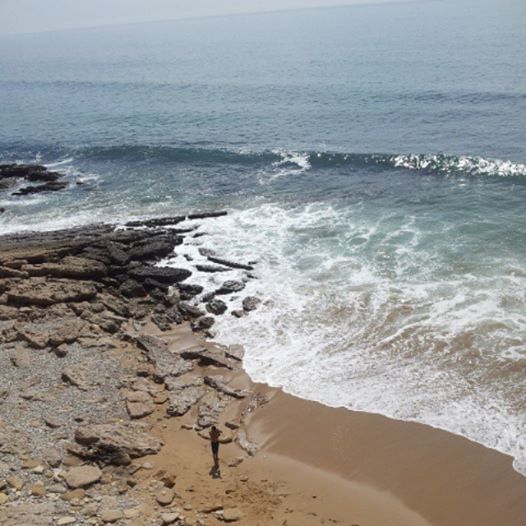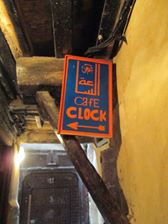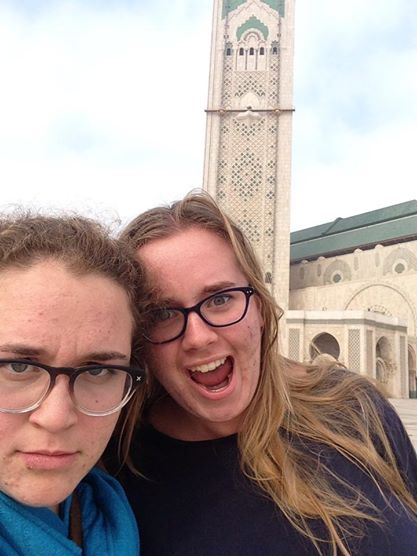Tags
Adjustment, Bored, Boredom, BuzzFeed, Exchange, Exchange student, Life, Morocco
Why have I not written this blog post before? I have been here for 7.5 months, and for 6.7 of those months, I have felt bored at some point in the day. I have dealt with boredom here on a level that I never have at home. But to say “I’m living in Morocco, and I’m bored” is the height of exchange student faux-pas. It just isn’t done. I can say “it’s hard,” “it’s amazing” or “it’s taught me so much,” but not “sometimes, I’m just bored.”
To get the elephant completely out of the closet, sometimes I’m just bored.
Boredom seems taboo to me because it presents itself as the antithesis of appreciation. It seems supremely ungrateful to acknowledge that there are days when I do nothing of note. It seems like something I could easily fix- just go out and do something new. But it’s not that easy, and it’s not what it seems.
I would not bore you with my boredom if I did not believe it to be a constructive boredom. Boredom is never emphasized on exchange websites, or in testimonials. Before I left, I never gave much thought to it. I assumed that discovering a new culture would keep me fully occupied, 14 hours a day, for 282 days. So in my mind, my exchange was going to be 3,948 hours of culture. Now, I would say that exchange is 3,948 hours of life. Boring hours, exciting hours, scary hours, stressful hours. Hours when you long to have nothing to do, and hours when you keep refreshing the BuzzFeed homepage hoping for a new “We can tell you what month you were born in” quiz.
Boredom is not the opposite of appreciation; it is an predictable bi-product of adjusting to a new culture. Why did no one ever tell me this? When you come in to a new country, you will be bereft everything that keeps you from being bored in the US: extra-curriculars, TV in a language you understand, good friends, accessible transportation, a library, the gym. How could you possibly not be bored? 10 months is not enough to get rid of the boredom, although it does get better with time.
This year, I have embarked on a vicious, 10-month war against the state of boredom, using whatever strategies I can think of, including:
- Taking an online class from Princeton on democracy in rural locations
- Learning how to code in JavaScript, HTML, and CSS
- Playing the same 10 songs on the violin over and over
- Making insanely visually complicated journal entries
- Niche searching on the internet, for things like “chocolate shops within 20 miles of Princeton, NJ”
- Drawing on a piece of paper until it is completely black
- Attempting to read The Count of Monte Cristo
- Taking artsy selfies
- Knitting
- Obsessively researching all things college
- Reading books on educational inequality in America
- Organizing a library at AMIDEAST
- Checking off boxes every five minutes to mark the passing of time (this one is particularly useful in school. Other variations include making dots and crossing one off every minute)
- Breaking world records for number of BuzzFeed articles read in one day
- Watching more movies than I had in my entire life up to this year
- Watching all five season of Downton Abbey over a period of 3 weeks
- Dabbling in other TV shows
- Overplucking my eyebrows
- Trying a new hairstyle
- Trying a new hairstyle on someone else
- Sitting at cafes doing nothing for hours just to avoid sitting at home doing nothing
- Walking to nowhere and back again
- Chatting with the YES Abroad group on Facebook even though I saw them an hour ago and I have nothing to say
- Overcoming my hatred of ebooks
Oof, brutal honesty. Some of my strategies were constructive, and others were complete wastes of time. But that’s what I’ve learned: when I’m bored, I have to find ways to make my time worthwhile. What I’m doing doesn’t have to be related to Morocco specifically. There are only so many cultural monuments in Rabat. But it is important to find ways to exercise my mind. At home, I do that without trying. Here, I have to try very hard.
Boredom is only part of every day, and it is a small part of my experience. If you ask me about my year when I return, I will not tell you “I was bored most of the time.” I am sure that when I get back to the US, I’ll be bored there too, because I won’t be adjusted to my life there right away. Boredom is part of exchange, and even though it’s not fun, it’s worth being acknowledged.































